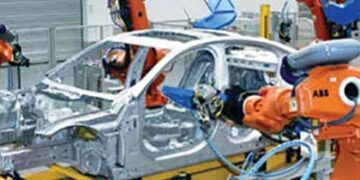Team Blitz India
LONDON: British car factories continue to buck the global trend with a sixth consecutive month of increased production.
According to the Society of Motor Manufacturers and Traders (SMMT), UK car manufacturing surged by 14.6 per cent in February, reaching 79,907 vehicles. This positive trend extends over the past six months, marking the best start to the year since 2021.
The sustained production growth reflects a recovery from the pandemic-induced supply chain disruptions, which had caused production levels to plummet to their lowest since the 1950s. This achievement stands out against the flat or declining production reported in other regions, particularly in the electric vehicle segment, which had previously shown significant growth.
Whilst Germany’s larger car industry experienced a 5 per cent decline in production this year, China witnessed a 25 per cent decrease compared to robust figures in 2023.
However, the SMMT warned of potential challenges ahead for the UK’s recovery as major manufacturers transition from producing longstanding models to new electric variants.
Nissan in Sunderland, Solihull (producer of Jaguars and Range Rovers), and the Mini factory in Oxford owned by BMW are among those undergoing electrification transitions. Nissan is focussing on models like the Qashqai and Juke. Jaguar Land Rover (JLR) is ceasing production of conventional petrol and diesel models this year, committing solely to zeroemission vehicles, leading to the closure of the Castle Bromwich factory.
Moreover, some Mini production has moved to China or Germany ahead of retooling of the Cowley factory to produce only electric Minis. Despite these shifts, the production of electrified cars in Britain, including hybrids, now constitutes over a third of total production.


























